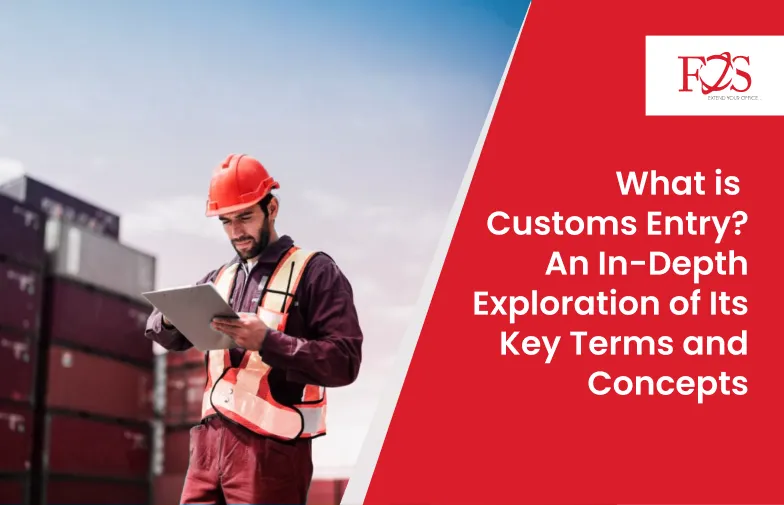If a person performs an international trade, s/he needs to be aware of all the rules and regulations of both import and export countries.
A violation of rules and regulations in this will cause trouble for both buyers and suppliers.
Of all these, customs entry is one of the vital documents.
This customs entry approval is indeed crucial for the shipper when importing goods from one country to another.
Customs entry
Customs entry is also known as “custom declaration.” Both the import and export of international trade require a customs entry document.
In simple terms, this is a summary or evidence given by a freight forwarder to the customs authority.
During international trade, this document is used to clear customs and legally import goods.
Customs officers use this customs entry document to determine the value, origin, and type of goods being imported.
Plus, it’s used to assess any duties, taxes, or other charges that may be imposed on the shipment.
The customs entry documents typically include information such as the type of goods, the quantity, the value, the manufacturer or supplier, and the intended use of the goods.
Knowing the terms involved in customs entry is all-fundamental.
Who is a freight forwarder?
Freight forwarders play the bridge between suppliers and buyers.
In other words, they act as an intermediary between the company that makes the shipment and the final destination for the goods.
Furthermore, freight forwarders can offer a variety of transportation options, including ocean freight, rail freight, road freight, and air freight.
Exceptional cases
If you are transporting goods within the European Union, you need not produce a custom entry document.
For your information, the European Union is composed of 27 countries. You can perform shipping in all these countries with no customs entry passes.
Custom clearance
Customs clearance is a procedure that starts with the submission of documents to the relevant government customs agency and ends with the examination and approval of the goods in transit.
It is a mandatory procedure for letting goods enter a country via an authorized customs broker.
You will have all the information about shipments with imports and exports, as well as the parties involved in the process.
Custom clearance documentation
The assigned customs broker prepares customs clearance documentation for the shipper.
It will demonstrate that any taxes or duties were paid. The goods are then cleared for import or export.
Who is a customs broker?
Customs broker is a person who clears customs on behalf of the other person for both imported and exported goods or the movement or storage of goods.
It’s as simple as that…
What are taxes?
We all know what tax means. It is a financial responsibility that is to be paid to the concerned government without fail.
Two types of taxes
Direct tax
A direct tax is one that is levied on a person’s income or wealth.
Indirect tax
An indirect tax is a tax that is levied on goods or services.
What are duties?
Duty is a payment made to the government for the manufacturing, importation, and exportation of products.
It is charged on goods and is a type of tax.
There are two types of duties
Excise duty
Excise duty is a tax levied on the production of goods within the country.
Custom duty
When goods are imported and exported from a country, customs duty is levied by the government.
For international trade, customs duty is really important.
Customs duty is a kind of indirect tax that is laid on goods and services on both import and export. The tax that is levied on imported goods is known as import duty, and the tax that is levied on exported goods is known as export duty.
Documents required for customs clearance on imports
Import license, insurance certificate, test report, industrial license, duty exemption documents, etc., are the documents which are required for import custom clearance.
Documents required for customs clearance on exports
The documents which are required for import custom clearance are customs packing list, commercial invoice, shipping bill, bill of lading, etc.

End note
A customs entry document is significant in international trade, where the document provides you with the legal approval for the goods.
If you miss any document, that will affect customs clearance. In addition, more cost and time will be involved due to insufficient or missing documents.
For importing goods, the importer needs to take care of the entire shipping process. To avoid problems during shipment, make a checklist about the goods.
Therefore, make sure you prepare a checklist, such as the required documents with the necessary information, the shipment information to be checked for accuracy, and adding the necessary information on the shipment’s label and submitting the document to the shipper or customs broker.
This will help you to ship things on time and in a smooth manner.
If you want a more professional and cost effective logistics BPO for customs entry service, we can provide them.
I hope the information provided above answered your questions.
If you have any questions about the customs entry, comment below to contact us.
